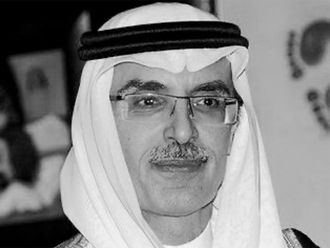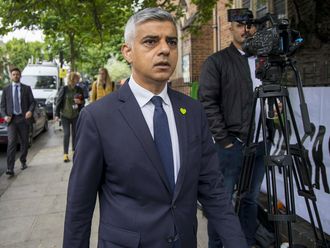Donetsk: Ukrainian forces and pro-Russian separatist fighters marked a month on Sunday since the signing of a Kremlin-backed truce with one the most heated battles of the six-month war in the ex-Soviet state’s eastern rust belt.
Artillery blasts rocked Donetsk on Sunday morning, exactly one month since the rebels signed a 12-point agreement with Kiev’s representatives to try to halt the hostilities that have killed over 3,300 people in eastern Ukraine.
“There is no ceasefire. You hear?” 31-year-old Yekaterina Manannikova said, pointing in the direction of Donetsk airport, once a glittering showcase for the biggest city in the east, now the battered scene of a non-stop firefight.
“Peace is already declared, how many times should it be declared to be effective? Two, three times?” snorted Vitaliy Chura, 29, blaming rebels for violations.
The sides further agreed to create a 30-kilometre buffer zone between their forces, but Ukraine’s military says Kiev will not start pulling back forces until rebels stop firing on its positions, including at the airport.
On Sunday, military spokesman Volodymyr Polyovy said rebels had launched two more airport attacks “with support of tanks” over the past 24 hours, but were repelled.
Two soldiers and at least one civilian died, putting the toll incurred during the ceasefire close to 80, excluding rebel losses.
A recent statement by the Donetsk rebels on their official website listed the damage to the city over the past days and concluded: “The truce is worse than the battle action.”
Despite the continuing carnage, however, both sides have stopped short of declaring the truce null. Russian and Ukrainian soldiers have even created a monitoring contact group together with the OSCE to patrol the frontline.
The OSCE late on Saturday said the sides have established a “joint centre on control and coordination” of the ceasefire regime and hope that it will “promote a further de-escalation of the situation”.
But in Donetsk, shells were falling over Gladkivka neighbourhood north of the centre, AFP correspondents saw. Firefighters extinguished flames engulfing residential houses — thankfully empty ever since their residents fled the conflict two months ago, according to neighbours.
Analysts said that Kiev is interested in keeping the semblance of peace in part due to the campaign season ahead of snap parliamentary polls on October 26 called by President Petro Poroshenko, who is keen to see as many eastern cities as possible participate.
“Society wants to see an end to the war... Politicians are trying to respond to these demands, and will keep talking about the truce even if, de-facto, it doesn’t exist,” said political analyst Taras Berezovets.
Moscow would not be eager to pronounce the ceasefire dead either, he added, explaining that “for Russia, it pays to keep destabilising the situation in Ukraine”.
“The attacks continue, while this ‘ceasefire’ can keep going for months,” he said.
Meanwhile, Europe would rather keep the status-quo of even a poorly working truce agreement at risk of deepening its standoff with gas-supplying Russia ahead of winter.
“Europe does not want any aggressive actions against Russia due to considerable bilateral economic ties, so its position is still two-fold,” said Yuriy Romanenko, director of Stratagema think tank.
One positive aspect of the truce is that despite its weaknesses, “military actions are not as heated as a month ago,” said Andreas Umland, a German analyst who teaches at Kyiv-Mohyla university.
The sides have blamed each other for the creeping death toll over the past days. A Swiss worker for the Red Cross was killed on Thursday, forcing the organisation to temporarily suspend its operations in eastern Ukraine.
“We’re halting work for some time. We have to evaluate the situation. We want to help people but we have to find a balance between help and security of our staff,” ICRC spokeswoman Viktoria Zotikova said on Sunday.
Increasingly alarmed Western countries have issued a barrage of stern warnings for the two sides to keep with the agreement, and Berlin is even mulling sending troops to help monitor the ceasefire, according to German media.
“Peace has been signed but guns are the only power that can decide here,” lamented Donetsk resident Olga, 42. “We don’t feel any ceasefire.”












